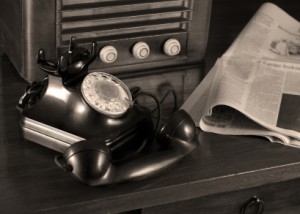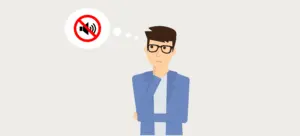
Way back in the 90’s, I decided to start Easy On Hold after a chance experience with a local restaurant. One evening, I called up a popular eating establishment to make a reservation, but was promptly placed on hold. While waiting, I heard a radio station playing a commercial for another restaurant across town.
You can probably guess what happened next. I promptly hung up, phoned in a reservation at that other restaurant and enjoyed a fabulous meal. Meanwhile, I couldn’t stop thinking about how downright dumb a business owner would have to be to run content on their hold button over which they had no control whatsoever.
With that, welcome to Easy On Hold, officially launched in 1997, to help businesses understand the importance of giving their callers a great on-hold experience.
So what happens? Typically, the telephone system installer offers to do a favor by plugging a 24/7 audio source (radio) into the music on hold port before signing off on the job. This demonstrates that the on hold port is active and working, but it is also dangerous. In addition to ads for their competitors being heard, rebroadcasting a radio signal on your phone system is not legal. In an article by attorney Mike Wilson, the downside of sidestepping proper music licensing for on-hold use is steep.
Actual damages as well as statutory damages of up to $20,000 can be awarded for each copyrighted song performed without a license. The damages can be up to $100,000 if the infringement is willful. And those who willfully infringe on a copyright for commercial advantage or private gain can be fined up to $25,000, be sentenced to jail time of up to a year,
or both.
Wait, don’t radio stations pay the royalties?
Most people using radio on hold probably are not aware that they’re in violation of any laws, in that they assume the radio station has already covered all licensing costs on their end. It’s true that radio broadcast stations are licensed to perform the music they carry on their airwaves, but your phone system is technically creating a RE-broadcast. Radio phone on hold music is considered an unlicensed, separate performance under the copyright law. The spirit of the law is that responsibility falls to the end-user, so your re-use of a radio station is therefore subject to fees. Read more: Easy On Hold Whitepaper: Is It Legal To Use Radio On Hold?
Control what your callers hear.
A well-written on-hold program will communicate helpful information about your products, services and other aspects of your company that make you unique–and that affirm in your caller’s mind that, yes, I made the right decision contacting this company.
That misguided restaurant could have maintained the loyalty of a customer that night had it approached its on hold messaging seriously. Then again, maybe we wouldn’t be here today.





